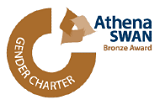
Preparing to Study: FAQs
We hope that you are looking forward to starting your undergraduate degree at York. We're often asked questions about what to expect in the first few months of study, and we've put together a collection of the most frequently asked questions which we hope you will find useful.
Take a look at the questions below. If you don't find the answer you need, send us an email at cs-ug-admissions@york.ac.uk and we'll be happy to help.
What do I need to do to prepare for university?
Welcome!
We're really looking forward to meeting you when you join us at York.
The University has plenty of useful information to help prepare you for university. This includes information about setting up your IT account, enrolling, confirming your accommodation, what to bring to York, and what to do when you arrive.
I have a disability. What support is available to me?
Support for students with a disability or long-term health condition
Do you have a disability or long-term health condition that has a significant impact on your ability to study?
If the answer is 'yes', then the University's Disability Services team can arrange academic support and adjustments. You can discuss your needs with a Disability Adviser and explore what support options may be available to you.
Please note that arrangements made with your previous school or college are not passed on to us automatically. We strongly recommend that you speak to the Disability Support Team if you think you will need extra support.
If you have any questions, email the Disability Support team at disabilityservices@york.ac.
- Find out more about what disability means
- Read about how to access support
- FAQs about what is classed as a disability, how the University can help and what you need to do to access support.
What can I expect during my first week?
Induction week
During your first week, we'll be running a full programme of activities for you. These will provide information about the Department and the opportunities available to you as one of our students. Full information about the week's activities will be published on our induction pages (coming soon!).
During your first week, you will also meet your academic supervisor and will arrange your first supervision meeting. Your supervisor is allocated to you when you arrive and is there to help and advise you on all aspects of life at university.
How will I be taught?
Teaching Methods
A typical week will involve about 10-15 hours of scheduled teaching time. Our courses are based on a series of lectures with associated laboratory sessions, programming classes and tutorials. There are problem classes to help you put learning from lectures into practice and regular project supervision meetings for your individual project.
As you progress through the course you will develop your skills to become a more independent learner. You'll also spend time working on your individual research project later on in the course, in addition to timetabled activity.
In addition to any timetabled sessions, you will meet with your supervisor regularly, and you can also go to them at any time should you have any issues, academic or personal.
Outside your timetabled hours, you'll study independently. This may include preparation for classes, follow-up work, wider reading, practice completion of assessment tasks, or revision.
Our software labs are accessible 24 hours a day, seven days a week, to help support your learning. You can access the Department building, corridor and lab by using your Student ID card.
How will I be assessed?
Assessment Methods
We use a variety of assessment techniques throughout your course. This allows you to practice different techniques, from report writing, presentations and live demos to timed programming assessments and closed exams. It also means that you are not disadvantaged by being assessed in any one way.
To aid your learning we provide feedback on your assessments in addition to the marks you receive. Our Examinations Team based here in the Department is also available should you have any assessment queries. You can contact the team by emailing cs-exams@york.ac.uk.
We also ask our students for feedback on the course at the end of each year. This helps to improve and modify what we do to help meet the needs of our students.
When will I be taught and assessed?
Teaching and assessment schedules
From September 2023, the University academic year will be split into two semesters and this will replace our previous three term model. Read more about semesters
Your timetable will be available to view before the start of the academic year. We also produce spreadsheets showing our annual course schedules and publish them on our student web pages. These are to be used as a reference point only, as they are not updated once teaching starts.
You will study and be assessed on three 20-credit modules within each semester. Each semester consists of one week for induction, eleven weeks of teaching, and four weeks for revision and assessment. When assessments have finished at the end of the second semester in the summer, the Department hosts a variety of events for undergraduate students before the academic year ends.
Please be aware that University Regulations state that you should be in York and present at any time when teaching or other academic activities have been arranged for students on your course (this may include include Saturdays).
Who will I meet?
Computer Science Staff
During your first few weeks, you will meet your supervisor and other key staff members. Some of these are listed below.
We don't expect you to remember everyone's name! If you have any questions, or you're not sure who you should go to, speak to your supervisor or see Jo Phillips on Reception.
- Head of Department: Professor Paul Cairns
- Deputy Head of Department (Teaching): Professor Iain Bate
- Chair Board of Studies: Dr Katrina Attwood
- Chair Board of Examiners: Dr Mark Nicholson
- UG Programme Lead & Director of Teaching: Dr Ian Gray
- UG CS/Maths Programme Advisor: Dr Detlef Plump
- UG Student Support Team (Uliana Zaychenko, Rachael Carr and Tessa Williams): cs-ug-admin@york.ac.uk
- Questions about assessments, exams and exceptional circumstances: cs-exams@york.ac.uk
- Reception Administrator (Jo Phillips): cs-reception@york.ac.uk
- Student & Academic Support Services Manager: Debra Lashua
- Student Support & Teaching Manager: Kate Taylor
- Teaching & Delivery Coordinator: Mel Race-Mellin
- Student Engagement Managers: Catherine Smith and Dominique Pickering
- Industrial Placements Team (Luke Bryant and Harriet Leaf): cs-placements@york.ac.uk
- Library Liaison for Computer Science : lib-compsci@york.ac.uk. See also the Library Subject Guide for Computer Science students.
Will I receive any academic skills support?
Develop your study skills
You'll need strong study skills to help you learn effectively and efficiently throughout your degree, such as time management, academic writing and digital know-how.
To help you develop your skills, the University offers a range of support from online resources to in-person workshops, which will help you with your academic writing, digital skills and more.
An essential part of your development is academic integrity - this is how we make sure that our work is ethical and trustworthy. When you start with us in the autumn, it is important that you complete the Academic Integrity Tutorial module on Yorkshare, the University's VLE (virtual learning environment).
What are Course Reps?
Representing your cohort
Here at York, students have the opportunity to be listened to at every level, ensuring that everyone can have the best experience while studying for their degree.
Course reps play a major role in enhancing the student academic experience, acting as the voice of their cohort and working with students and staff to ensure that all students are equally represented.
Students that take on the role of course reps become invaluable contacts for both students and staff. By gathering student opinion, they become specialists in course-based issues, and their input is vital in helping the Department to identify and tackle problems that arise.
Being a course rep is a great opportunity to meet lots of new people while gaining fantastic experience and developing your communication and research skills.
If you'd like to find out more about becoming a course rep, you can:
- Visit the University of York Students' Union (YUSU) webpage;
- Email engagement@yusu.org;
- Speak to your Department Rep by emailing computersciencerep@yusu.org.
We look forward to working with you!
How do I find out what's going on?
Keep up to date!
Every year, the Department issues a Student Handbook, which is your go-to guide for useful information about studying on your course. This document is available online, and we strongly recommend that you bookmark the page, so that you can access it easily whenever you need it.
The University publishes a Student Homepage on its website,which is a useful resource for finding rooms, booking study space and check availability for library seating. It also gives support and guidance on a range of issues, making sure you can find the right contacts when you need them.
Finally, our own student web pages (UoY login required) provide you with lots of information about your course, modules and assessments. We publish regular newsletters, and also keep you up to date through our social media accounts.
Find out more:
- Read the Taught Course Student Handbook
- Visit the University's Student Homepage
- Go to the web pages for Computer Science students (UoY login required)
- Follow our Twitter and Instagram accounts

